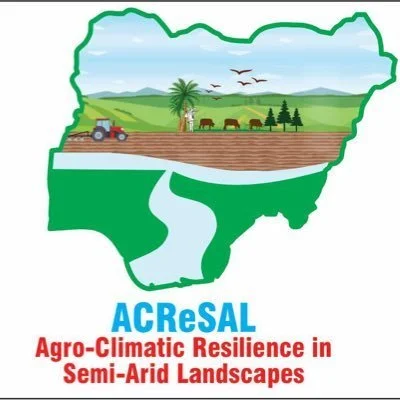The Federal Government is to partner with the Agro-Climatic Resilience in Semi-Arid Landscapes (ACReSAL) project to restore degraded lands and promote sustainable livelihoods in the semi-arid region of the country.
ACReSAL is a World Bank-financed project designed to tackle the pressing issues of land degradation and climate change in 19 states of Northern Nigeria.
This resolution was taken during the Federal Technical Committee (FTC) meeting of the Agro-Climatic Resilience in Semi-Arid Landscapes (ACReSAL) Project, held with the Federal Ministry of Environment in Abuja on Wednesday.
The meeting was attended by stakeholders to review the project’s progress and examine its Annual Work Plan for the upcoming implementation year.
Mr Mahmud Kambari, Permanent Secretary in the Ministry of Environment described the gathering as a defining moment in Nigeria’s pursuit of environmental sustainability and community resilience.
“As we confront the realities of climate change, drought, and food insecurity, our shared vision through ACReSAL is transforming into concrete action.
“This plan embodies our collective responsibility to restore degraded lands, strengthen livelihoods, and secure a sustainable future for millions of Nigerians,” Kambari said.
Also speaking, Dr Marcus Ogunbiyi, the Permanent Secretary in the Ministry of Agriculture and Food Security, reaffirmed the ministry’s full support for the project’s objectives.
“The ACReSAL project aligns perfectly with our mission to strengthen food security through climate-smart agriculture.
“By promoting drought-tolerant crops, soil restoration, and improved farming practices, we are empowering small holder farmers and building resilience in rural communities. Together, we can ensure that our agricultural sector continues to thrive despite environmental challenges,” Ogunbiyi assured.
Also, Mr Richard Pheelangwah, the Permanent Secretary in the Ministry of Water Resources and Sanitation, highlighted the project’s critical role in protecting Nigeria’s water ecosystems and improving sanitation standards in semi-arid regions.
“ACReSAL offers a comprehensive approach to managing our fragile water systems, through watershed rehabilitation, sustainable irrigation, and rainwater harvesting.
“We are not only preserving water resources but also enhancing public health and agricultural productivity. Our ministry remains committed to providing the technical leadership necessary to advance water security across the country,” Pheelangwah assured.
Mr Abdulhamid Umar, the National Project Coordinator of ACReSAL, delivered a presentation on the project’s current status and impact across the participating states.
He said that ACReSAL’s interventions are technologically driven and encompasses afforestation, reforestation, ecosystem restoration, erosion and flood control livelihood initiatives, climate-smart agriculture, water management, capacity building and policy development.,
“Strategic catchment management planning, institutional strengthening, and environmental education initiatives, are all geared toward long-term impacts and sustainable environments,” Umar said.
He sais that so far, the project has restored over 800,000 hectares of degraded landscapes adding that civil works have reached an almost completion stage in some states.
He further stated that out of the wide range of impactful activities implemented in the state, 8,708,291 persons have benefited from the project intervention, with 4,120,649 being women.
Umar stated that ACReSAL has successfully addressed numerous environmental challenges, including those that once plagued communities in the Nguru Wetlands and Hadejia axis of the Northeast, now cited as classical examples of the project’s transformative impact.
The News Agency of Nigeria reports that ACReSAL project seeks to mitigate the impacts of climate change in northern Nigeria by restoring degraded lands, improving water management, increasing agricultural yields, and promoting sustainable livelihoods.
The meeting concluded with a collective call for continued inter-ministerial synergy to ensure that ACReSAL delivers measurable benefits to communities most affected by desertification, drought, and land degradation.


